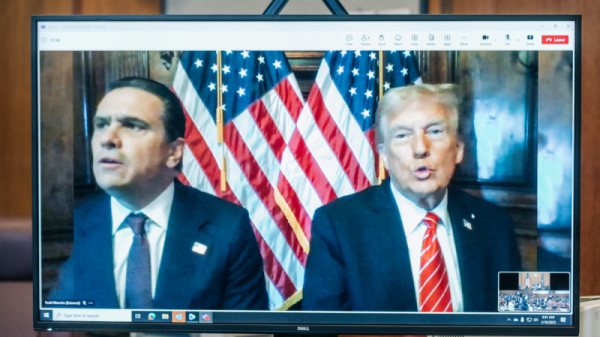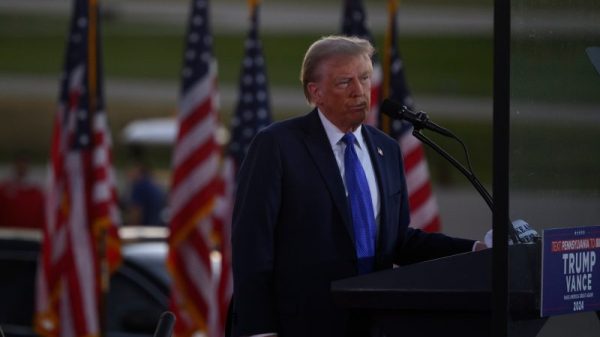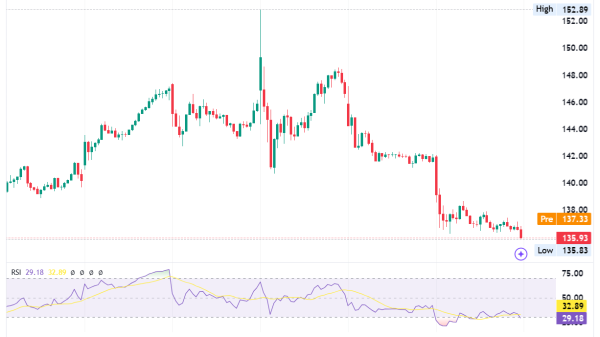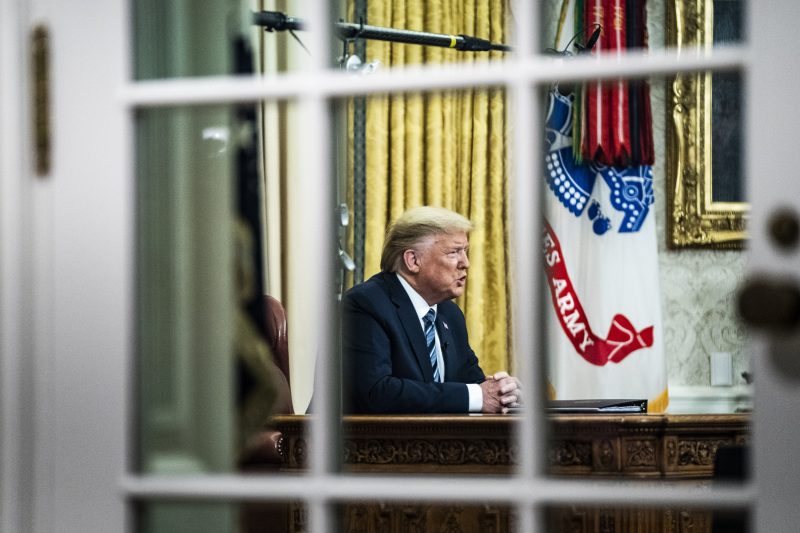On Jan. 3, 2021, a group of Justice Department officials met in the Oval Office to resolve a critical dispute within President Donald Trump’s administration.
William P. Barr had stepped down as attorney general two weeks before and Trump wasn’t happy with Jeffrey Rosen, the acting attorney general. Trump was considering booting Rosen in favor of Jeffrey Clark, an environmental lawyer within the Justice Department who was eagerly amplifying Trump’s allegations that the 2020 presidential election had been stolen.
Trump criticized Rosen for not being willing to use the department to aid his efforts to retain power. Rosen insisted that doing so would run afoul of the law and the Constitution. So, pulling a cavalry sword off the wall, Trump cut off his arms.
Not really! While all the rest of this scenario occurred, the part about the sword didn’t. If it had, though, good news for Trump: Under the standard set by the Supreme Court on Monday, he probably could not have been held criminally liable for having dismembered his acting attorney general.
In the wake of the court’s decision in Trump v. United States, the case that determined presidents had broad immunity from prosecution for official acts, one hypothetical has captured the public’s imagination. It was the one articulated in Justice Sonia Sotomayor’s dissent.
“When [the president] uses his official powers in any way, under the majority’s reasoning, he now will be insulated from criminal prosecution,” she wrote. “Orders the Navy’s Seal Team 6 to assassinate a political rival? Immune.”
Sotomayor didn’t invent this particular scenario, mind you. During oral arguments in the case, she asked an attorney representing the former president if a chief executive “decides that his rival is a corrupt person and he orders the military or orders someone to assassinate him,” whether that was an official act that deserved immunity. The attorney said that it “could well be an official act.” It was Justice Samuel Alito who, a bit later in the conversation, introduced the idea that the theoretical assassins would be members of Seal Team 6.
In an interview on Fox News Monday, Barr himself rejected this hypothetical, saying it “makes no sense whatsoever.”
“The president has the authority to defend the country against foreign enemies, armed conflict and so forth,” he stated. “He has the authority to direct the justice system against criminals at home. He doesn’t have authority to go and assassinate people.”
“Whether he uses the SEAL team or a private hit man, it doesn’t matter,” Barr continued. “It doesn’t make it a carrying out of his authority. So, all these horror stories really are false.”
Except they aren’t.
In her concurring dissent, Justice Ketanji Brown Jackson specifically articulated a scenario that would presumably render a president immune from prosecution. In broad strokes, it mirrors that Oval Office debate from 2021, centering on the president’s obvious power to oust Cabinet officials from their positions.
“While the President may have the authority to decide to remove the Attorney General, for example,” Jackson wrote, “the question here is whether the President has the option to remove the Attorney General by, say, poisoning him to death.”
The distinction being drawn, she continued, was between presidential power and the manner in which that power was exercised. Send a tweet firing him or poison him. Or chop off his arms so he resigns of his own accord. All just a president doing president stuff in different ways.
Barr’s argument is that a president can’t simply deploy a SEAL team to go kill someone. But, of course, a president can do that. Barack Obama sent a SEAL team to kill Osama bin Laden in 2011.
Before doing so, a team of government attorneys got together to assess the legality of the move and to establish legal arguments that could be presented after the fact, should the action be questioned. The Supreme Court’s decision on Monday would have obviated some of that, because there would have been fewer possible legal questions stemming from the decision. After the successful operation, though, few such questions arose.
Obama entered more fraught terrain when he approved the killing of an American citizen in a drone strike that same year. That the citizen, Anwar al-Awlaki, had worked with al-Qaeda meant that he was a viable target under the terms of the authorization of force passed after the Sept. 11 attack, according to a government memo prepared before the strike. The killing kicked off a furious debate about the boundaries of presidential power.
The method of each killing was beside the point. It was the determination that the person could be killed that mattered. If a president made a national security argument for the removal of an opponent, the method theoretically wouldn’t matter for immunity purposes any more than the means of getting a problematic attorney general out of the way would. Barr scoffs at the hypothetical since using a SEAL team “doesn’t make it a carrying out of his authority.” But the issue is that the killing could theoretically be brought into the scope of authority, rendering the method, again, beside the point.
Would Trump and his loyal staff stretch his power to effect his will? Would he, say, assert that his opponents had committed treason, a capital crime? Could he find staffers who would support those efforts? A judge or judges who would side with him? Uh, yes. See his speeches or social media posts. See the example above, involving Jeffrey Clark and the 2020 election. See what unfolded after the 2020 election.
And see the decision in Trump v. United States, which was predicated on Trump’s federal indictment for having tried to overturn the election. His effort to put Clark into position in the Justice Department, in fact, was referenced indirectly in Chief Justice John G. Roberts Jr.’s majority opinion as excusable.
Had he attempted to make that transition of power more feasible by attacking disagreeing government officials with a katana — or, say, by summoning Seal Team 6 to the Oval Office to intimidate Rosen and others? Well, that’s just a president doing president stuff, isn’t it?





























